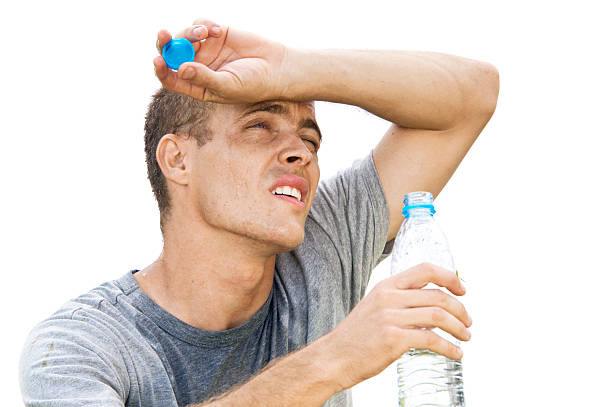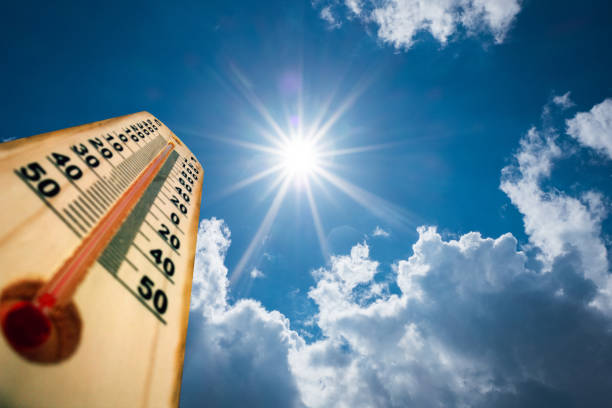Extreme heat wave pose significant health risks and challenges, requiring individuals to take proactive measures to stay safe and comfortable. Whether you’re facing scorching temperatures in urban areas or enduring prolonged periods of intense heat, prioritizing safety is paramount. In this guide, we’ll outline essential strategies to help you remain safe during extreme heat waves, safeguarding your well-being and minimizing the risk of heat-related illnesses.
Understanding the Dangers of Extreme Heat: Extreme heat waves are characterized by exceptionally high temperatures and prolonged periods of heat stress. These conditions can have serious consequences for human health, increasing the risk of heat-related illnesses such as heat exhaustion and heatstroke. Vulnerable populations, including the elderly, children, individuals with chronic illnesses, and outdoor workers, are particularly susceptible to the adverse effects of extreme heat.
Table of Contents
ToggleEssential Safety Tips for Surviving Extreme Heat Waves:
1. Stay Hydrated:

Hydration is critical during extreme heat waves to prevent dehydration and maintain optimal bodily functions. Drink plenty of water throughout the day, even if you don’t feel thirsty. Avoid beverages containing caffeine or alcohol, as they can contribute to dehydration. Consider setting reminders to drink water regularly, especially if you’re engaged in outdoor activities or spending time in hot environments.
2. Keep Cool in Extreme Heat Wave:

Find ways to keep your body cool and lower your core temperature to reduce the risk of heat-related illnesses. Seek air-conditioned environments such as malls, libraries, or community centers during the hottest parts of the day. If air conditioning is unavailable, use fans or take cool showers to help regulate your body temperature. Wear lightweight, loose-fitting clothing made from breathable fabrics to promote airflow and enhance comfort.
3. Limit Outdoor Activities:

Minimize outdoor activities, particularly during the peak hours of extreme heat, typically between 10 a.m. and 4 p.m. If outdoor work or exercise is unavoidable, take frequent breaks in shaded or cool areas. Pace yourself and avoid strenuous activities that may lead to overheating. Wear sunscreen with a high SPF to protect your skin from sunburn and reduce the risk of heat-related skin damage.
4. Check on Vulnerable Individuals:

Check on elderly relatives, neighbours, and individuals with chronic health conditions to ensure they’re coping with the heat wave safely. Offer assistance with accessing cool environments, staying hydrated, and monitoring for signs of heat-related illnesses. Encourage them to seek medical attention if they experience symptoms such as dizziness, nausea, or confusion, which could indicate heat exhaustion or heatstroke.
5. Create a Cool Environment:

Take steps to create a cool and comfortable living space to retreat to during extreme heat waves. Close blinds or curtains to block out direct sunlight and prevent indoor temperatures from rising. Use fans or portable air conditioners to circulate air and maintain a comfortable indoor climate. Keep curtains or windows open during the cooler evenings to allow for natural ventilation and airflow.
6. Stay Informed:
Stay informed about weather forecasts and heat advisories issued by local authorities. Monitor heat index values, which account for humidity levels and provide a more accurate measure of how hot it feels outside. Plan outdoor activities accordingly, rescheduling or modifying plans to minimize exposure to extreme heat. Stay connected with community resources and support services available during heat emergencies, such as cooling centers or outreach programs.
Conclusion: Surviving extreme heat waves requires vigilance, preparation, and a proactive approach to safety. By staying hydrated, keeping cool, limiting outdoor activities, checking on vulnerable individuals, creating a cool environment, and staying informed, you can protect yourself and others from the dangers of extreme heat. Remember to prioritize safety during heat waves, and seek medical attention if you or someone else experiences symptoms of heat-related illness. Together, we can navigate extreme heat waves safely and resiliently.
-By Sangita Dutta

Leave a Reply